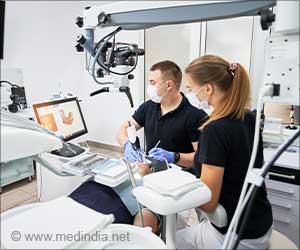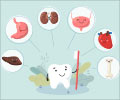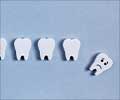- Dental check-ups reveal markers for chronic diseases
- Over 55% of patients had unhealthy BMI levels
- Dentists play a vital role in supporting overall public health
Opportunistic health screening for cardiovascular and diabetes risk factors in primary care dental practices: experiences from a service evaluation and a call to action
Go to source).
Health Detectives in Scrubs
Doughty emphasized the potential of a health check at the dentist, describing it as a way to offer reassurance to many patients and a wake-up call for others to adopt healthier lifestyles. The advantage lies in the fact that individuals already visit the dentist regularly, providing an opportunity for health checks during these routine appointments.Top 10 Diseases that a Dentist can Diagnose during Regular Check-ups
- Diabetes Indicators: Gum disease and infections
- Cardiovascular Warning Signs: Oral symptoms linked to heart health
- Osteoporosis Clues: Jaw bone loss on X-rays
- Detecting Eating Disorders: Tooth enamel erosion
- HIV/AIDS Oral Manifestations: Lesions and fungal infections
- Kidney Disease Indicators: Bad breath and metallic taste
- GERD and Enamel Erosion: Acid reflux affects oral health
- Recognizing Rheumatoid Arthritis: Jaw pain, swelling, and movement issues
- Identifying Sleep Apnea Signs: Excessive wear and large tongue
- Stress-Related Oral Conditions: Bruxism and TMJ disorders
"Dental visits aren't just about your teeth. They're a gateway to early detection and better health. Your smile is just the beginning."
Reference:
- Opportunistic health screening for cardiovascular and diabetes risk factors in primary care dental practices: experiences from a service evaluation and a call to action - (https://www.nature.com/articles/s41415-023-6449-6)
Source-Medindia














